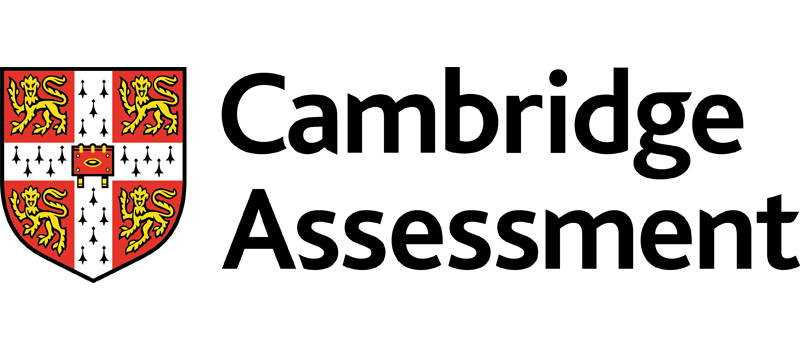
Legal Compliance and Labor Law Updates
Course ID: 2506160101265ESH
Course Dates : 16/06/25 Course Duration : 5 Studying Day/s Course Location: London, UK
Language: Bilingual
Course Category: Professional and CPD Training Programs
Course Subcategories: Operations and Process Excellence
Course Certified By: ESHub CPD & LondonUni - Executive Management Training
* Professional Training and CPD Programs
Leading to:
Executive Diploma Certificate
Leading to:
Executive Mini Masters Certificate
Leading to
Executive Masters Certificate
Certification Will Be Issued From :
From London, United Kingdom
Course Fees: £5,120.30
Vat Not Included in the price. VAT may vary depending on the country where the course or workshop is held.
Click to Pay
Date has passed please contact us Sales@e-s-hub.com
Course Information
Introduction
Legal compliance and labor law updates are fundamental aspects of modern business operations. With regulatory frameworks continually evolving, organizations must remain vigilant in their adherence to both local and international labor laws to ensure a fair, ethical, and legally sound working environment. Labor laws govern the relationship between employers and employees, protecting workers' rights while outlining the responsibilities of employers. These laws cover a wide spectrum of issues, ranging from wage and hour regulations, anti-discrimination policies, health and safety standards, to worker benefits and collective bargaining rights. Staying up-to-date with these laws is not only a legal necessity but also a cornerstone of a responsible and sustainable organizational culture.
The rapidly changing landscape of labor regulations poses several challenges for businesses and professionals. Globalization, technological advancements, and shifts in societal expectations have led to frequent updates and revisions in employment laws. This dynamic environment makes it challenging for organizations to ensure that their policies are aligned with the latest legal standards. Failure to comply with labor laws can result in costly legal disputes, financial penalties, and reputational damage. As such, it is imperative that legal and HR professionals are equipped with the knowledge to navigate the complexities of labor law effectively and efficiently.
The significance of understanding labor law updates extends beyond compliance—it also empowers organizations to create workplaces that foster respect, equity, and inclusivity. Legal compliance is essential for mitigating legal risks, but it also contributes to building trust with employees and stakeholders. Furthermore, businesses that prioritize adherence to labor laws and promote ethical employment practices are better positioned to attract and retain top talent. Employees who feel protected by sound legal frameworks are more likely to be engaged, productive, and loyal to the organization, thus enhancing overall organizational performance.
Another crucial aspect of labor law compliance is its role in shaping organizational policies that align with the principles of fairness and justice. By adhering to legal standards, businesses can ensure equal treatment for all employees, irrespective of gender, race, or other personal characteristics. This commitment to diversity and inclusion fosters a positive work environment and prevents discrimination, harassment, or exploitation in the workplace. Understanding and implementing labor law policies also contribute to reducing conflicts and disputes that may arise between employees and employers.
The practical implications of labor law updates are far-reaching. Beyond the legalities, there are direct and tangible impacts on day-to-day operations. Managers, HR professionals, and business leaders must understand the importance of proper documentation, timely communication, and transparent processes in the context of labor law. Effective compliance management systems help businesses not only meet legal requirements but also establish best practices that enhance operational efficiency and employee relations.
This course, Legal Compliance and Labor Law Updates, aims to equip participants with an in-depth understanding of the latest labor law trends, regulatory changes, and compliance strategies. It will provide professionals with the necessary tools and knowledge to adapt to ongoing legal transformations, implement best practices within their organizations, and ultimately safeguard their businesses from legal risks.
Objectives
By attending this course, participants will be able to:
Understand the key principles of labor law and their relevance to modern business operations.
Identify recent updates and changes in labor laws at the national and international levels.
Analyze the impact of labor law changes on organizational policies and practices.
Implement strategies to ensure compliance with current labor regulations within the workplace.
Develop and update company policies in line with the latest legal requirements to mitigate risks.
Recognize the challenges posed by non-compliance and identify practical solutions for legal risk management.
Assess the implications of labor law updates on employee rights, benefits, and protections.
Utilize case studies and real-life examples to deepen understanding of labor law enforcement and disputes.
Create an action plan for continuous labor law compliance in the workplace.
Enhance the organization's ability to respond to legal challenges and changing regulations effectively.
Who Should Attend?
This course is ideal for:
Human Resources professionals, including HR Managers and Directors, who are responsible for overseeing labor law compliance within organizations.
Legal professionals, such as Corporate Lawyers, Employment Attorneys, and Legal Advisors, who need to stay current with labor law trends and regulations.
Business Owners, CEOs, and Senior Executives who require a comprehensive understanding of labor law to make informed decisions for their organizations.
Compliance Officers tasked with ensuring organizational adherence to all legal and regulatory requirements.
Managers and Supervisors who directly oversee teams and need to understand labor law's impact on day-to-day operations.
Labor Relations Officers or Union Representatives who navigate the intersection between employers and employee rights.
Anyone in charge of policy development or implementation regarding employee welfare and organizational compliance.
Training Method
• Pre-assessment
• Live group instruction
• Use of real-world examples, case studies and exercises
• Interactive participation and discussion
• Power point presentation, LCD and flip chart
• Group activities and tests
• Each participant receives a 7” Tablet containing a copy of the presentation, slides and handouts
• Post-assessment
Program Support
This program is supported by:
* Interactive discussions
* Role-play
* Case studies and highlight the techniques available to the participants.
Daily Agenda
Daily Schedule (Monday to Friday)
- 09:00 AM – 10:30 AM Technical Session 1
- 10:30 AM – 12:00 PM Technical Session 2
- 12:00 PM – 01:00 PM Technical Session 3
- 01:00 PM – 02:00 PM Lunch Break (If Applicable)
- Participants are expected to engage in guided self-study, reading, or personal reflection on the day’s content. This contributes toward the CPD accreditation and deepens conceptual understanding.
- 02:00 PM – 04:00 PM Self-Study & Reflection
Please Note:
- All training sessions are conducted from Monday to Friday, following the standard working week observed in the United Kingdom and European Union. Saturday and Sunday are official weekends and are not counted as part of the course duration.
- Coffee and refreshments are available on a floating basis throughout the morning. Participants may help themselves at their convenience to ensure an uninterrupted learning experience Provided if applicable and subject to course delivery arrangements.
- Lunch Provided if applicable and subject to course delivery arrangements.
Course Outlines
Introduction to Labor Law and Legal Compliance Principles
Overview of Labor Law and Employment Regulations
Historical Evolution and Key Milestones in Labor Law
Core Principles of Legal Compliance and Ethical Standards
Understanding the Role of HR in Legal Compliance Management
Day 2:
Key Legal Updates and Regulatory Changes
National and International Labor Law Updates: Current Trends
Recent Changes in Wage and Hour Laws: Minimum Wage, Overtime, and Benefits
Anti-Discrimination and Equal Employment Opportunity Legislation
Labor Law Reforms in the Context of Globalization and Technological Advancements
Day 3:
Practical Applications of Labor Law and Compliance Mechanisms
Developing and Implementing Internal Policies for Legal Compliance
Risk Management and Mitigation Strategies for Non-Compliance
Labor Law Audits: Tools and Best Practices for Monitoring Compliance
Documenting and Reporting Compliance: What You Need to Know
Day 4:
Employee Rights and Benefits Under Labor Law
Health and Safety Regulations in the Workplace
Employee Benefits: Paid Leave, Retirement Plans, and Other Protections
Employee Privacy and Data Protection Laws
Handling Employee Grievances and Disputes: A Legal Perspective
Day 5:
Labor Law Challenges and Future Outlook
Emerging Issues: Gig Economy, Remote Work, and Worker Classification
Navigating Legal Challenges and Handling Disputes Effectively
Preparing for Future Changes: Proactive Legal Compliance Strategies
Final Review and Creating a Personalized Compliance Action Plan




















































